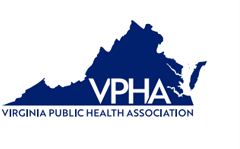Abstract
Purpose: The purpose of this analysis was to determine the factors that may influence the probability of being recommended a lung cancer screening by a health professional in Virginia.
Methods: Data were obtained from the Community Health Assessment Survey conducted by the University of Virginia (UVA) Health System and Cancer System in collaboration with Virginia Commonwealth University (VCU) Cancer Center. SAS software was used to conduct a logistic regression with the following variables: age, sex, race, current smoking status, cancer history, education level, income level, insurance, and rurality.
Results: Statistically significant positive predictors included being a current smoker (OR: 3.504, CI: 1.576 - 7.794), having previous cancer history (OR: 2.159, CI: 1.090 - 4.278), and living in an urban environment (OR: 1.939, CI: 1.009 - 3.724).
Conclusion: Smoking, cancer history, and rurality were considered significant predictors of lung cancer screening recommendations by a health professional in Virginia while age, sex, race, education level, income level, and insurance were not considered significant predictors in this model. This study suggests that key mechanisms underlying lung cancer outcome disparities among racial minorities and socioeconomically disadvantaged groups may lie beyond the level of screening recommendations. Further research investigating when along the disease progression these disparities tend to arise could help in creating more targeted public health interventions and improving health equity.
Recommended Citation
Batheja, Aashish; Miller, Carrie; Kim, Sunny Jung; F., Bernard Fuemmeler; and Balkrishnan, Rajsh
(2023)
"Predictors of Lung Cancer Screening Recommendation in Virginia Using the Community Health Assessment Survey,"
Virginia Journal of Public Health: Vol. 8:
Iss.
1, Article 8.
Available at:
https://commons.lib.jmu.edu/vjph/vol8/iss1/8
Included in
Community Health and Preventive Medicine Commons, Epidemiology Commons, Public Health Education and Promotion Commons

